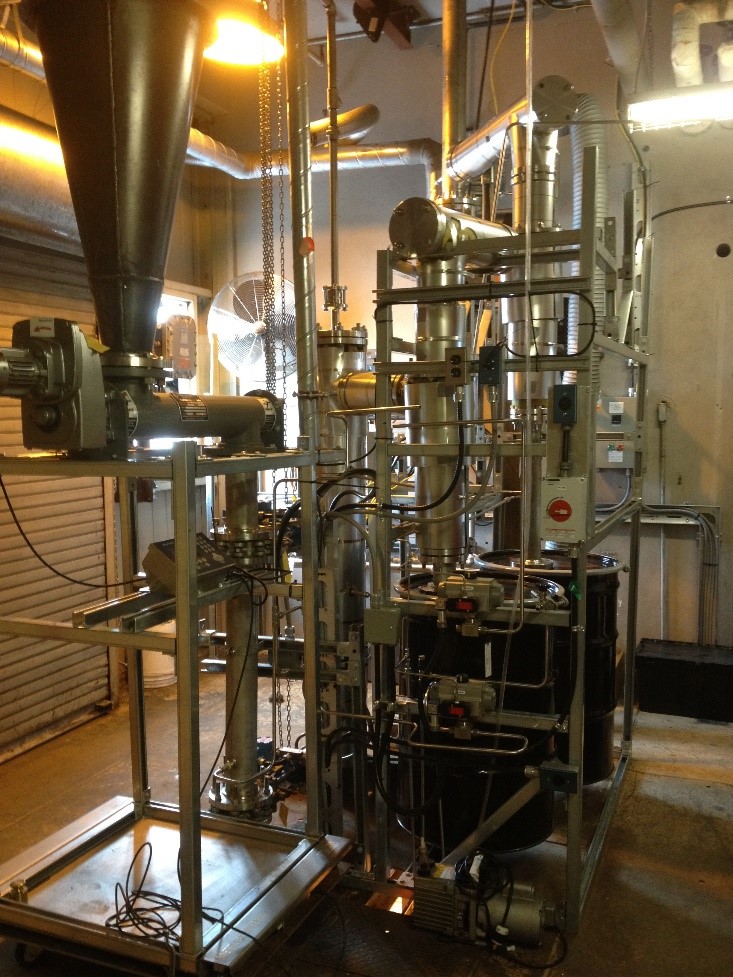Project location: CanmetENERGY Ottawa, Ottawa, ON.
Timeline: 5 years (2023 to 2028)
Program: Bioenergy
Project Overview and Objectives
A number of biofuels have been commercially available for several years or even decades. These include ethanol, bio-diesel (fatty acid methyl esters (Fame)), and renewable diesel (hydrotreated esters of fatty acids (HEFA)). These fuels involve the conversion of relatively high-quality biomass derivatives like sugar, starch, and lipids. While it has proven economically feasible to convert these substances to fuel, the total impact that they can have on sustainable transformation of the Canadian and global economies is limited by their relative scarcity in nature.
The most abundant form of terrestrial biomass is lignocellulose. This is the structural material, lignin, cellulose, and hemicelluloses, that plants and trees are made out of. Biofuels produced from lignocellulose are often referred to as advanced biofuels to distinguish them from more conventional biofuels based on sugar, starch, or lipids. Advanced biofuels are in the very early stages of commercialization. They are deemed important for the sustainable transformation of the Canadian global economies because of the abundance of potential feedstock and because they have far less potential to compete with the production of food.
Gasification is a leading technology for the production of advanced biofuels. Gasification converts any carbonaceous biomass into a renewable synthesis gas that can be transformed into a wide variety of fuels and chemicals using catalytic processes that are well known to the chemical industry. The advantage of gasification is that it converts lignocellulosic biomass into very simple molecules with well-known properties, so that once the gas is produced there is a high degree of certainty about downstream processing into finished products. This makes gasification technology a leading contender for the production of advanced biofuels.
The activities of this project focus on the conversion of Canadian lignocellulosic biomass residues into a nitrogen free synthesis gas suitable for the production of renewable natural gas (RNG) and other renewable fuels. Pilot scale experimentation using CanmetENERGY Ottawa’s (CE-O) steam-oxygen fluidized bed gasifier will form the basis for the conception of processes for the transformation of biomass synthesis gas into biofuels. Techno-economic assessments (TEA) and life cycle analyses (LCA) will be performed to evaluate the economic feasibility and carbon intensity of converting Canadian biomass residues into RNG and other advanced biofuels. Operational issues including agglomeration in the fluid bed and the presence of tars will be addressed. By-products will be collected and analyzed, so their disposal or utilization can be accounted for in TEAs.
Impact and Innovations
- Derive experimental data from fluidized bed steam-oxygen gasification of Canadian biomass residues, including impact of alternative bed materials and mineral additives to ameliorate operational difficulties such as agglomeration and the presence of tars.
- Provide guidelines for enhancing economic feasibility via effective utilization or transformation of by-products including biochar, ash and tar. Determine the requirements for potential utilization scenarios such as biochar sequestration, alternative cementitious materials, and biohydrocarbons for upgrading.
- Create a digital sibling for CEO’s pilot scale fluidised bed gasifier using numerical methods with the goal of estimating the effect of scaling the gasification process and driving TEA and LCA of biomass gasification processes for the production of RNG and other advanced biofuels.
Results and Outcomes
This project create knowledge that enhances the deployability of gasification technology, facilitating the conversion of lignocellulosic biomass to energy and advanced biofuel fuels. These activities allow CanmetENERGY to maintain a useful knowledge base that informs policy decisions, supports industry innovation, and positions Canada as a leader in global sustainability.

Figure 1: CanmetENERGY Ottawa’s fluidized bed gasification pilot plant
Contact CanmetENERGY in Ottawa
To learn more about this project, email our Office for Research Partnerships and External Relations.